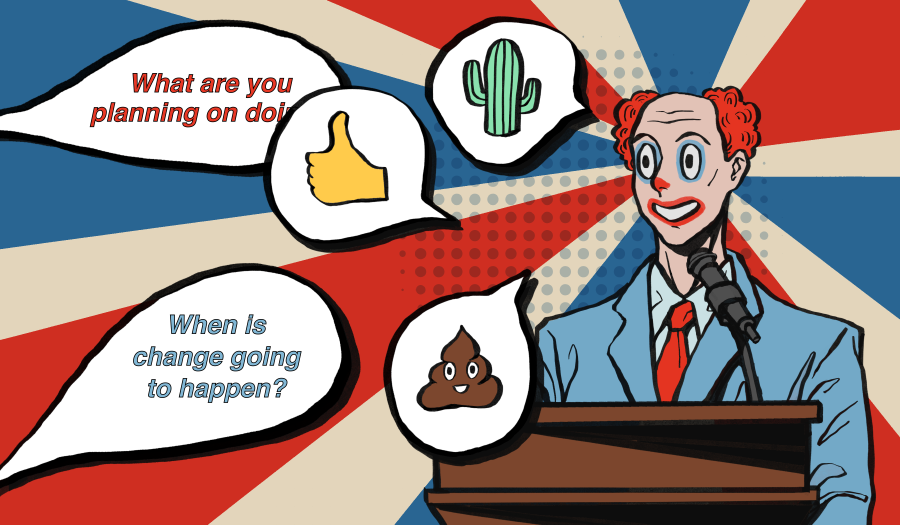It’s a common legend that after the Constitutional Convention in the summer of 1787, crowds of people lined the streets celebrating the momentous step forward for the new nation with the drafting of a new Constitution for the United States. As Benjamin Franklin was walking out of Independence Hall in Philadelphia, an elderly woman asked him, “Tell me doctor, do we have a republic or a monarchy?” Franklin then humbly responded, “We have a republic as long as we can keep it.” Fast forward to the present-day, where the Senate is wildly dysfunctional, unable to pass a simple infrastructure bill or raise the debt ceiling to prevent a fiscal disaster. The reason for this: the filibuster. In order to deliver on the demands and interests of Americans on Main Street, it is vital that the Senate recognizes the pitfalls of the filibuster and oversees its removal from practice.
The filibuster first came into existence in 1805 and was meant to serve as a way to end debate. For instance, the much smaller Senate would debate and once a simple majority — more than 50 percent —voted to end debate, the Senate would then proceed on holding a vote to pass the bill for the President’s approval. However, the Vice President Aaron Burr believed that the Senate should have as much debate as possible because of the significance of their responsibility. The original rule of the simple majority to end debate was replaced by unlimited debate where the Senate would debate until they couldn’t physically anymore and would hold a vote on the proposed bill; however, this rule existed until World War 1 where the United States was largely neutral and Congress was debating the constitutionality of giving then-President Woodrow Wilson war powers. Of course, because they debated for so long, Woodrow Wilson was mad and demanded that the Senate return to the old Senate rule: simple majority to hold a vote, simple majority to pass a bill. Ultimately, the Senate compromised with Wilson by initiating a new rule for the filibuster: two-thirds to agree to hold a vote, and a simple majority to pass. This compromise is the filibuster that strangles the Senate’s ability to deliver on the wishes of the American people.
With the Democratic Party controlling both the House and Senate, progressives have bold plans ranging from tuition-free public universities and colleges, Medicare-for-All, high taxation for high-income individuals, and a Green New Deal, all of which the American people support with well over a majority as the polls have indicated time and time again.
With unprecedented income inequality since the Great Depression, rising costs of higher education, healthcare, and stagnant median wages, the middle-class and young professionals fresh out of college suffer the consequences from the havoc that the filibuster is reaping on the Senate’s ability to pass legislation to materially improve the lives of average Americans. President Joe Biden’s $1.2 trillion COVID-19 stimulus plan barely passed the Senate and only because Senate Democrats could use a rule called reconciliation where they can bypass the filibuster with only a simple majority of 51 votes. Every Republican in the Senate voted against the stimulus. If this wasn’t the case, the filibuster would have allowed Republicans to block stimulus checks and expanded paid leave during a global pandemic and economic stagnation as a result.
In early August, the For The People Act was put to a vote in the Senate. The act would expand existing campaign finance laws to reduce the power of big corporate donors, expand voting access, ban partisan gerrymandering, and strengthen the integrity of our elections against foreign interference. Despite a majority of the Senate voting for the bill, it failed because Republicans voted unanimously against it and the bill didn;t reach the 60 votes to bypass the filibuster. Especially after the 2020 election with the lie that the election was illegitimate, we are witnessing the disintegration of our democracy with Republican states passing bills restricting voter access and the endless flow of “dark money” into our federal elections. As of late, the filibuster has prevented any substantive action against these assaults on the stability of our “democratic” elections and has permitted our economy to exclusively work for the interests of the top 1 percent.
To effectively save democracy, young professionals, and the economic backbone of the country — middle-class people, Congress urgently needs to pass higher income taxes with new brackets on the top 1 percent, a public health insurance plan, expand voting access, protect the integrity of POC votes, and guarantee tuition-free public education for all, which the filibuster has always prevented — effectively blocking all attempts to safeguard the heart of American democracy.
Whether college students like it or not, our votes are beginning to matter less and less and we are entering a tremendously unequal economy with stagnant wages, extraordinarily high loans as the cost of college keeps increasing every year, and the daunting reality that carbon emissions will inflict irreversible damage to the climate — a future we will be forced to live in. All legislation that may reverse these trends is either being held up or has failed to pass only because the filibuster exists in the Senate.
Abolishing the filibuster to allow the simple majority in the Senate to pass legislation is by no means a radical solution. In 1890, the House of Representatives got rid of the filibuster because they understood the fundamental flaw with it: if a political minority can block the agenda of the majority party that the majority of Americans elected into office, are we really a republic or a monarchy ruled by minority interests?
Art by Angela Liang for UCSD Guardian.














